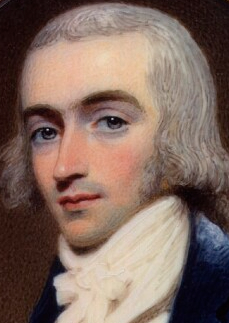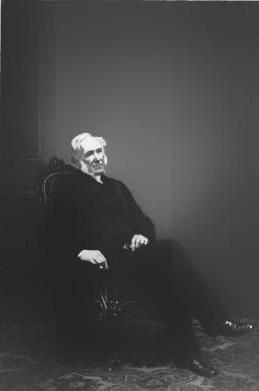
The Christian Observer was a London evangelical periodical, serving a readership in the Church of England. It appeared from 1802 to 1874.

The Christian Observer was a London evangelical periodical, serving a readership in the Church of England. It appeared from 1802 to 1874.
The Christian Observer was founded by William Hey "in response to the dissenters' Leeds Mercury ." [1] It was published by the bookseller John Hatchard. Various members of the Clapham Sect were associated with the paper from the outset. Josiah Pratt, who had called for such an evangelical periodical in a 1799 meeting of the Eclectic Society, served as editor for the first number in January 1802. Pratt was succeeded after six weeks by Zachary Macaulay, who edited the periodical until 1816.
Later editors were Samuel Charles Wilks (from 1816 to 1849), William Goode (from 1847 to 1849), John William Cunningham (from 1850 to 1858), and John Buxton Marsden (from 1859 to 1869).
Contributors included Thomas Babington, the clergyman and theological writer Charles Smith Bird (1795–1862), the lay theological writer John Bowdler (1783–1815), the writer on prophecy William Cuninghame of Lainshaw (c. 1775-1849), the clergyman William Dealtry (1775–1847), the clergyman and biblical scholar George Smith Drew (1819–1880), John Shore, 1st Baron Teignmouth, Henry Thornton, Henry Tuke, John Venn (1759–1813), and Daniel Wilson.

John Henry Hobart was the third Episcopal bishop of New York (1816–1830). He vigorously promoted the extension of the Episcopal Church in upstate New York, as well as founded both the General Theological Seminary in New York City and Geneva College in Geneva in the Finger Lakes area. He was the beloved pastor of Elizabeth Seton before her conversion to Catholicism.
The Yale Review is the oldest literary journal in the United States. It is published by Johns Hopkins University Press.
The Peace Society, International Peace Society or London Peace Society, originally known as the Society for the Promotion of Permanent and Universal Peace, was a pioneering British pacifist organisation that was active from 1816 until the 1930s.
The Church Mission Society (CMS), formerly known as the Church Missionary Society, is a British Anglican mission society working with Christians around the world. Founded in 1799, CMS has attracted over nine thousand men and women to serve as mission partners during its 200-year history. The society has also given its name "CMS" to a number of daughter organisations around the world, including Australia and New Zealand, which have now become independent.

John Christian Frederick Heyer was the first missionary sent abroad by Lutherans in the United States. He founded the Guntur Mission in Andhra Pradesh, India. "Father Heyer" is commemorated as a missionary in the Calendar of Saints of the Evangelical Lutheran Church in America on November 7, along with Bartholomaeus Ziegenbalg and Ludwig Ingwer Nommensen.
The Christian Remembrancer was a high-church periodical which ran from 1819 to 1868. Joshua Watson and Henry Handley Norris, the owners of the British Critic, encouraged Frederick Iremonger to start the Christian Remembrancer as a monthly publication in 1819. Renn Dickson Hampden was briefly editor, 1825–6. In 1841 Francis Garden (1810–84) and William Scott (1813–72) became co-editors. In 1844 the magazine was relaunched as a quarterly, with James Mozley briefly succeeding Garden and acting as an editor until 1855.

The Livingston family of New York is a prominent family that migrated from Ireland to the Dutch Republic, and then to the Province of New York in the 17th century. Descended from the 4th Lord Livingston, its members included signers of the United States Declaration of Independence and the United States Constitution. Several members were Lords of Livingston Manor and Clermont Manor, located along the Hudson River in 18th-century eastern New York.
William Marsh (1775–1864) was a British priest in the Church of England and a writer of theological publications, in the 19th century. He was the vicar in St Peters, Colchester where his daughter, Catherine Marsh, the writer was born.
John Kempthorne was an English clergyman and hymnwriter.

Charles Chetwynd Chetwynd-Talbot, 2nd Earl Talbot, KG, PC, FRS, styled Viscount of Ingestre between 1784 and 1793, was a British politician and slave holder. He served as Lord Lieutenant of Ireland between 1817 and 1821.

Josiah Pratt (1768–1844) was an English evangelical cleric of the Church of England, involved in publications and the administration of missionary work.

Robert Fellowes, LL.D. was an English clergyman, journalist and philanthropist.
Samuel Charles Wilks (1789–1872) was an evangelical clergyman of the Church of England, known as a journalist.
John William Cunningham (1780–1861) was an evangelical clergyman of the Church of England. He was known also as a writer and an editor.

Charles Smith Bird (1795–1862) was an English academic, cleric and tutor, known as a theological author and writer of devotional verse, and described as a High Church Evangelical. He was the author of several significant books against Tractarianism.
The Evangelical Magazine was a monthly magazine published in London from 1793 to 1904, and aimed at Calvinist Christians. It was supported by evangelical members of the Church of England, and by nonconformists with similar beliefs. Its editorial line included a strong interest in missionary work.
John Overton (1763–1838) was an English clergyman, known for his defence of evangelicals at the start of the 19th century.